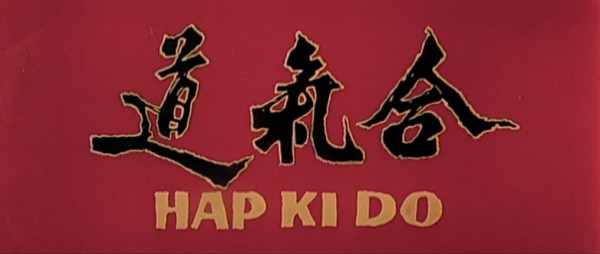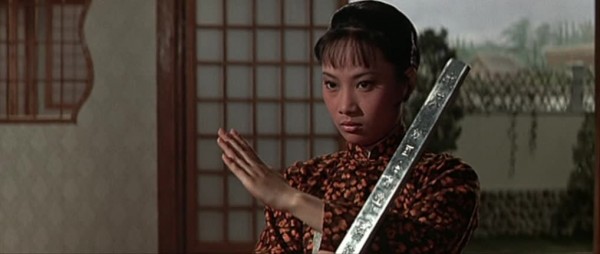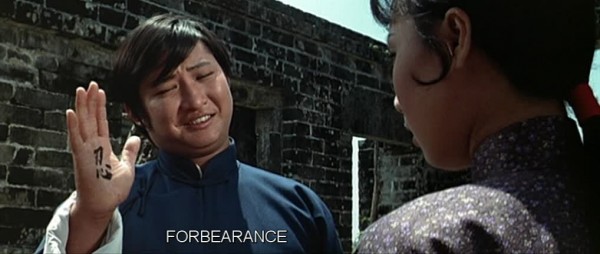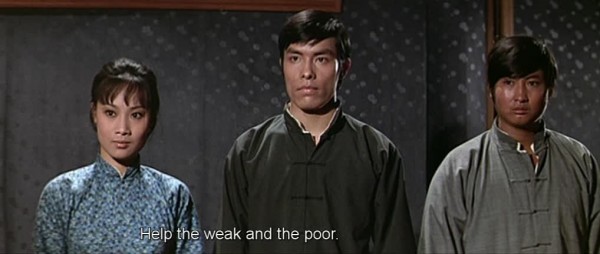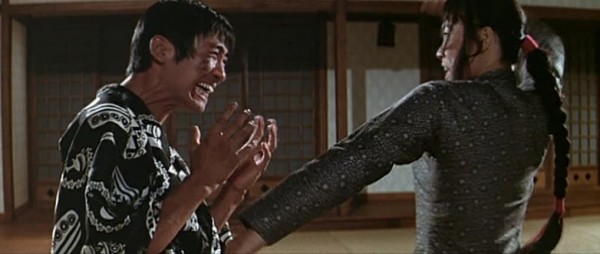
When Taekwondo Strikes
aka 跆拳震九州 aka Sting of the Dragon Masters aka Kickmaster aka Tai quan zhen jiu zhou
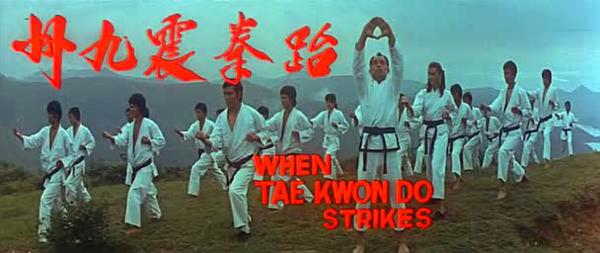
1973
Written by Gwak Il-ro and Chu Yu
Directed by Wong Fung
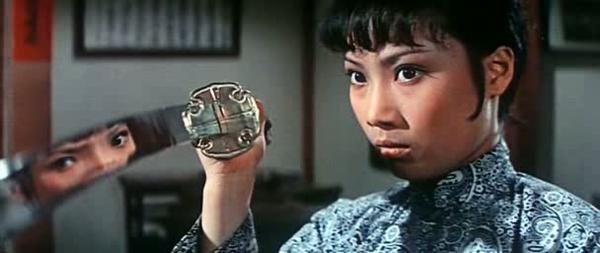
When martial arts movies are talked about, there is the practice by certain people of just labeling all martial arts films as kung fu films. Of course, fans of the genre know there are many different types of martial arts cinema, from kung fu to karate to taekwando to Pencak Silat to Muay Thai. And all of those have their own subgroups and subsubgroups, and films will mix styles, often as a selling point. For When Taekwondo Strikes, taekwondo is obviously the featured martial art, even Jhoon Rhee – “the father of American Taekwondo” – is one of the stars in his only film role. You can also spot Sammo Hung, Lam Ching-Ying, and Yuen Biao in the stunt teams, which is always a fun game with these older flicks.
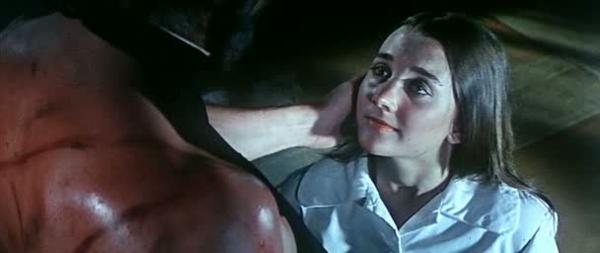
When Taekwondo Strikes is one of hundreds of films that takes place during the Japanese Occupation, this time on the Korean peninsula. It also scores points for mention the use of Korean women as comfort women to the Japanese troops overseas, as the evil Bansan Karate School engages in this practice.
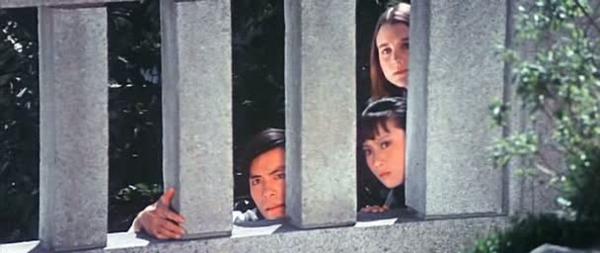
When Taekwondo Strikes features some great cinematography tricks that make it a far better film than just your random basher. The shots while the Japanese are threatening work great in establishing a mood. In the beginning, the Japanese men are shot from an upward angle, thus making them look more powerful and threatening. The Koreans who are victimized are shot at a downward angle, making them look weak. As the heroic Koreans get more brave and powerful, standing up to their oppressors, the shots become even. Eventually, the triumphant Koreans tower over their former oppressors as the camera angles reverse.
There is also a lot of religious imagery, especially crucifixion. Both the captured Father Louis and then the captured Li Jun Dong are both tied up in a crucifixion manner. In the beginning of the film, the Japanese chase a Korean who knows taekwondo (thus marking him as anti-Japanese) into a church run by Westerners. The priest will not talk, and when the Japanese slap one of his parishioners, he slowly turns his other cheek towards them.
Besides the cinematography, the fight choreography is well done, the battles being consistently entertaining and feeling furious and dangerous, even if Angela Mao is always in control. The Japanese villains are always presented as threatening, and even though they can be defeated they will not hesitate to harm the loved ones of anyone who dares resist them.
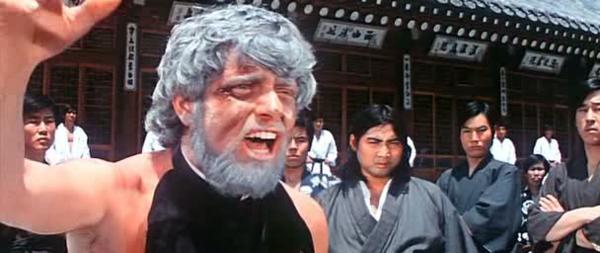
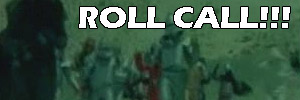
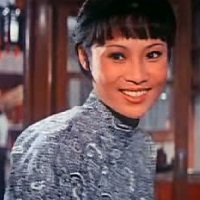 |
Huang Li Chen (Angela Mao Ying) – A Chinese who grew up in Seoul, works in her mom’s restaurant. But due to her sympathies with the Koreans who share the same fate of being invaded by the Japanese as her homeland, she gets caught up in the intrigue and fighting. Luckily, she’s more than skilled in the fighting department. |
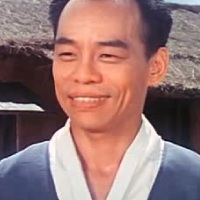 |
Li Jun Dong (Jhoon Rhee) – Gardener and secret resistance leader for Japanese occupied Korea. Jhoon Rhee was the father of American taekwondo, this looks like the only film he had a role in. |
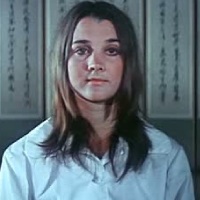 |
Mary (Ann Winton) – The niece of Father Louis and resistance fighter once the Japanese start hassling her uncle. Ann Winton was on of Jhoon Rhee’s followers who came with him to Hong Kong to make When Taekwondo Strikes. As far as I can tell, this was her sole movie role. |
 |
Jin Zheng Zhi (Carter Wong Ka-Tat) – Fellow resistance fighter who helps free Li Jun Dong. Is in a lot of the film but is surprisingly underdeveloped because he’s taking a backseat to Angela Mao and Jhoon Rhee. |
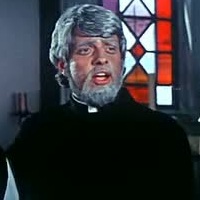 |
Father Louis (Andre E. Morgan) – French missionary in Japanese-occupied Korea who stays to support his flock. Father Louis looks like George Lucas. In the subtitles, he’s called Father Lu Yi |
|
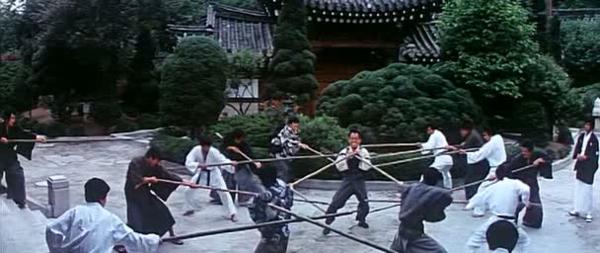
Continue reading →

![]()






